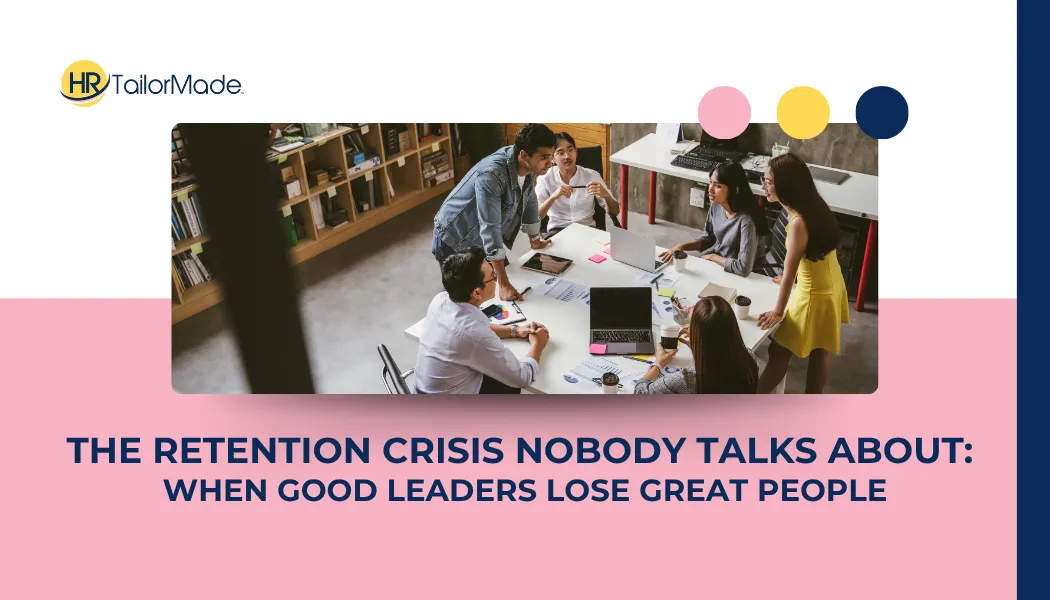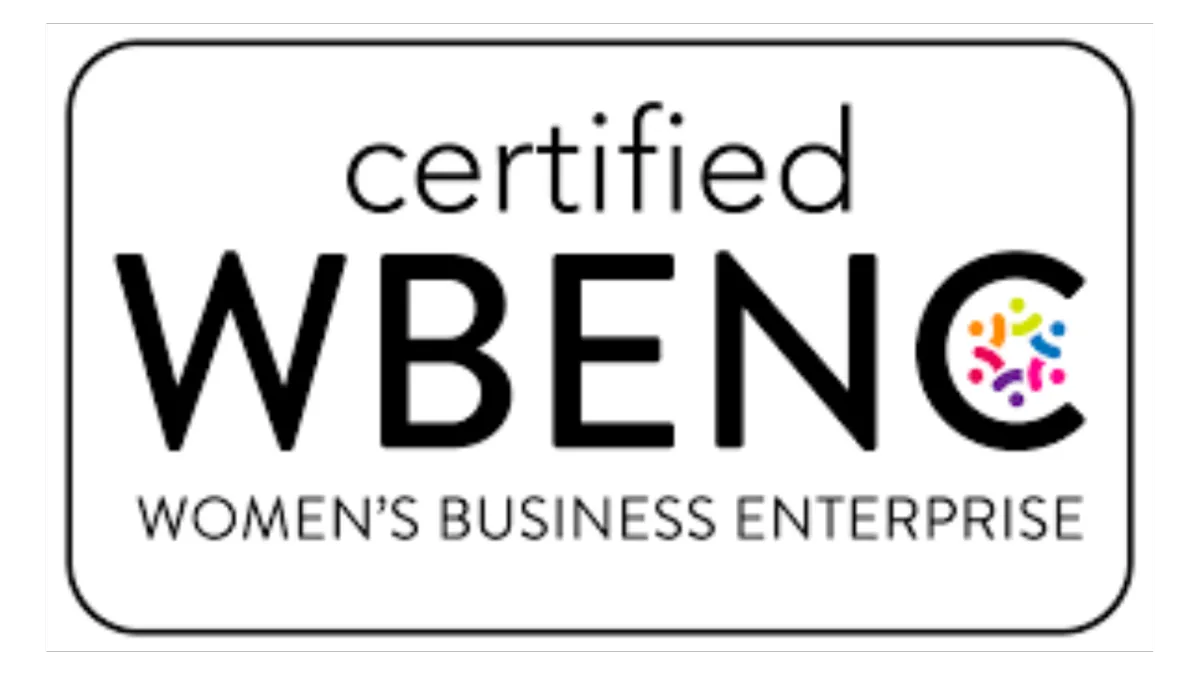
The Retention Crisis Nobody Talks About: When Good Leaders Lose Great People
The 11 PM Wake-Up Call
Makisha Boothe will never forget that Tuesday night.
Sitting alone in her office, illuminated only by the harsh glow of her laptop screen, she read the email that would change everything. Another resignation. The third in two months.
Each departure felt personal. These weren't just employees—they were people she'd personally recruited, trained, and championed. People who'd told her they believed in the mission. People she thought would grow with the company.
"What am I doing wrong?" she whispered to the empty office.
For small business owners and nonprofit leaders like Makisha, this moment is achingly familiar. You work harder than anyone. You care more deeply than you probably should. You've built something meaningful, and yet—your best people keep walking away.
The conventional wisdom says you need to pay more, offer better benefits, or somehow compete with larger organizations. But Makisha's story reveals a different truth entirely.
The Gap Between Values and Experience
Makisha's business wasn't failing. Revenue was up. Client demand was strong. On paper, everything looked healthy.
But inside the organization, her team was experiencing something completely different. They saw growth as chaos. Uncertainty about roles and expectations. Disconnection from the bigger purpose that had drawn them to the work in the first place.
The passion was there. The mission was clear. But somewhere between Makisha's intentions and her team's daily reality, something critical was being lost.
When she partnered with HR TailorMade, the diagnosis became clear: Makisha had strong values, but she didn't have culture systems.
Her values—compassion, collaboration, results—lived in her head and heart. They guided her decisions and shaped her leadership. But they weren't embedded in the structures and rituals that defined everyday work life.
New hires didn't hear the company story during onboarding. Wins were celebrated sporadically, if at all. Team meetings focused solely on tasks and deadlines. Communication happened reactively, often in crisis mode.
There was nothing intentionally wrong with any of this. Makisha was simply doing what most small organization leaders do: focusing on the urgent work of keeping the doors open and serving clients. Culture felt like a luxury for later, when things calmed down.
But "later" never comes. And meanwhile, culture was happening anyway—just not the one she intended.
Building Culture Systems That Retain
The work Makisha did with HR TailorMade wasn't about creating a ping pong table in the break room or instituting "fun Fridays." It was about taking her existing values and weaving them into the operational fabric of the organization.
They started with onboarding. Instead of paperwork and policy reviews, new team members now experienced a structured introduction to the company story, their role in the mission, and the values that guide decision-making. They met with multiple team members. They heard stories about why the work matters. They left their first week feeling connected, not just informed.
They redesigned recognition. Rather than occasional praise for hitting targets, the team built weekly rituals that celebrated how work got done. When someone embodied compassion in a difficult client situation, the team heard about it. When collaboration led to innovation, it was acknowledged publicly. Values became visible, not abstract.
They restructured meetings. Team gatherings started with connection—sharing personal wins, acknowledging challenges, reinforcing relationships. Only then did the agenda turn to tasks. This simple shift reminded everyone they were humans working together, not just roles executing functions.
They created communication pathways. Instead of hoping people would speak up, the organization built regular feedback loops. Monthly check-ins. Anonymous pulse surveys. Open office hours with leadership. Team members felt heard, not just managed.
None of these initiatives required massive budgets or complex technology. They required intention, consistency, and a willingness to prioritize culture as strategic infrastructure rather than a "nice-to-have."
The Transformation
The changes didn't happen overnight, but they happened steadily.
Within four months, retention stabilized. Team members who'd been quietly updating their LinkedIn profiles started bringing new ideas to meetings. Collaboration improved across departments. The energy shifted from survival mode to possibility thinking.
"I didn't realize how much work culture was doing—either for me or against me," Makisha reflected. "Once we got it aligned, it was like suddenly everyone was rowing in the same direction. And I wasn't exhausted trying to hold everything together by myself anymore."
The numbers told part of the story: reduced turnover, improved productivity metrics, higher satisfaction scores on internal surveys. But the real transformation was qualitative. The workplace felt different. People wanted to be there. They stayed late because they were excited, not because they were behind. They referred talented friends for open positions.
Research consistently shows that values-driven leadership and supportive HR systems don't just improve employee satisfaction—they drive organizational performance. When people feel connected to purpose through their daily experience of work, retention becomes natural.
Culture Is Strategy, Not Sentiment
Here's what many small organization leaders miss: culture isn't soft. It's strategic.
It's not about being nice or creating a fun atmosphere (though those can be byproducts). Culture is the system of behaviors, practices, and rituals that either reinforce your values or contradict them. It's happening whether you design it intentionally or let it evolve by default.
When culture aligns with your mission, it becomes your most powerful retention tool. Not because people can't find other jobs, but because they don't want to leave. They're not just working—they're part of something that matters, and they feel that every single day.
When culture contradicts your mission—when stated values don't match lived experience—no amount of salary increases or benefits packages will keep your best people. They'll leave for organizations where the alignment exists, even if the compensation is lower.
Questions for Reflection
If you're reading Makisha's story and recognizing pieces of your own organization, consider these questions:
What story does your onboarding tell? Do new team members leave their first week feeling inspired by your mission and clear about their role in it? Or do they leave with a binder full of policies and a vague sense of what you do?
When was the last time you celebrated values in action? Not just results, but the way someone achieved them. Not just productivity, but character, collaboration, compassion, or whatever your core values happen to be.
Do your team members know why their work matters beyond the task list? Can they articulate how their specific role connects to the larger mission? Or does work feel like a series of disconnected to-dos?
How do people experience your values on a difficult day? When things go wrong, when mistakes happen, when tensions rise—do your stated values show up in how you lead, communicate, and problem-solve? Or do they disappear under pressure?
Are you building systems, or just working harder? Are you trying to hold culture together through personal effort and goodwill? Or have you created structures that sustain healthy culture even when you're not in the room?
The Path Forward
You don't have to figure this out alone.
Building culture systems that retain your best people—that transform good intentions into thriving, joyful workplaces—is exactly what HR TailorMade does. We partner with small nonprofits and mission-driven businesses to close the gap between values and daily experience.
This isn't about generic HR solutions or one-size-fits-all templates. It's about understanding your unique culture, your specific values, and your particular challenges—and then co-creating tailored systems that work for your organization.
If you're feeling the tension Makisha felt—knowing something isn't quite right with retention, sensing the gap between your intentions and your team's experience, wondering if you're doing something wrong—you're not alone. And more importantly, you're not stuck.
Culture is buildable. Retention is achievable. And you don't need a massive HR department or unlimited budget to make it happen.
Ready to explore what this could look like for your team? Schedule a free 30-minute culture conversation with Tiffany Slater, PhD, SHRM-SCP. Let's talk about turning your values into the retention advantage they're meant to be.
Because your mission deserves a team that doesn't just stay—a team that thrives.


